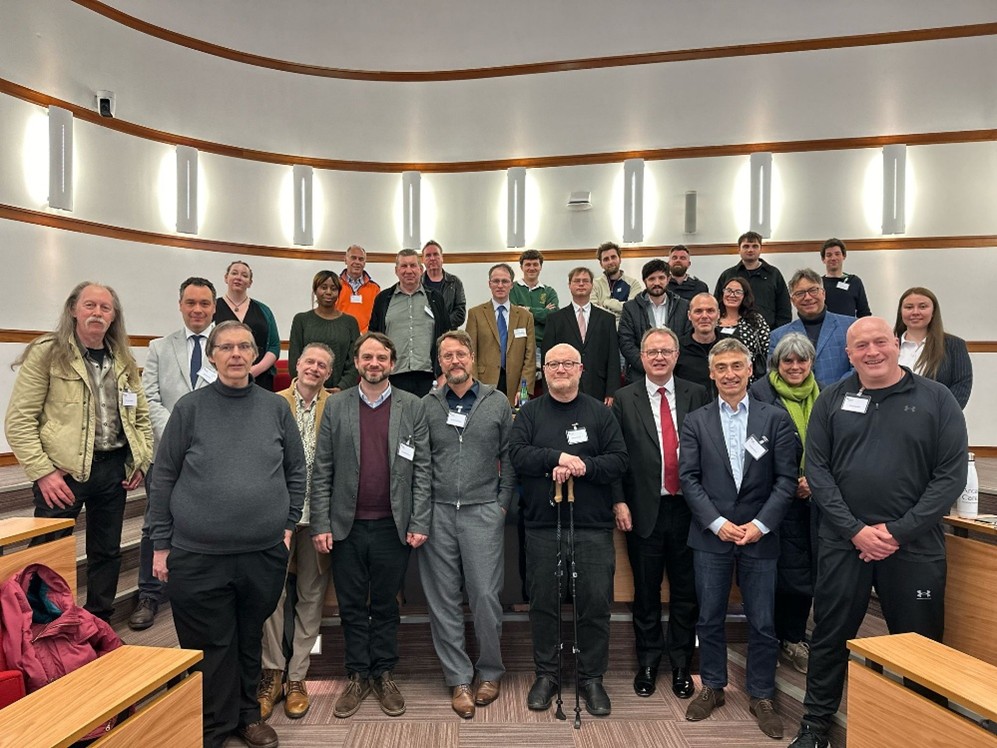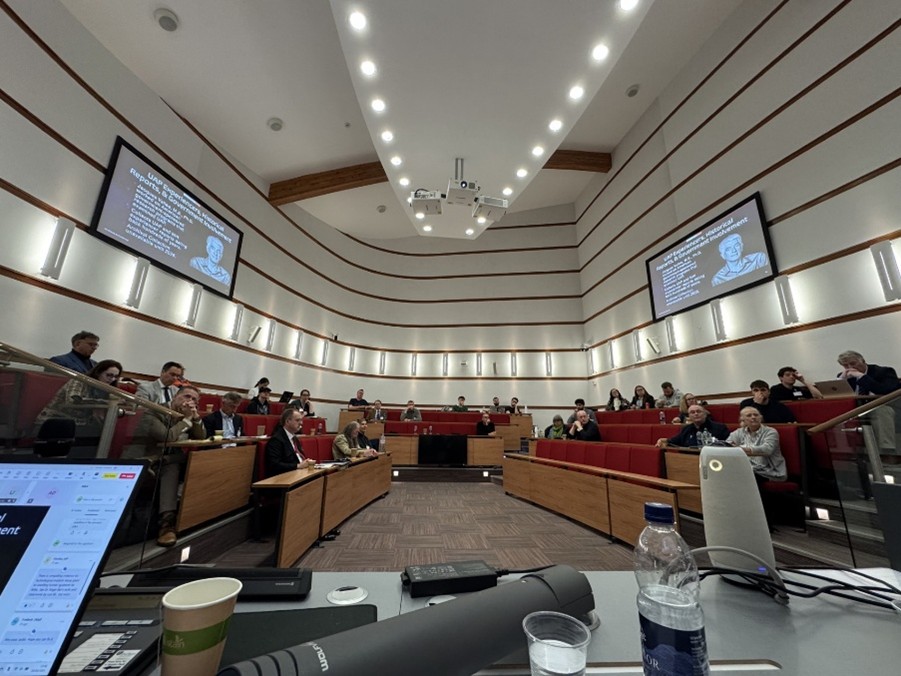Durham Law School Symposium and Durham Declaration on SETI and UAP Research Gain International Media Attention

Symposium at Durham Law School on 24 April 2025 on “Grounding the SETI and UAP Debate” announces Declaration on SETI and UAP Research
Photo credit: Amber Dagnall
On 24 April 2025, Durham Law School hosted the international and interdisciplinary symposium “Grounding the SETI and UAP Debate”. The event was organised by Professor Michael Bohlander, the School’s Chair in Global law and SETI Policy, and open to the public. This followed an earlier symposium in March 2023, titled “Alien Conversations”, which prepared the ground for the fundamental stocktaking exercise of the recent event. Interest from members of the public was unexpectedly great, with 31 delegates attending in person and 80 online, after registrations had spiked following a letter to the editor of the Guardian in February 2025.
The event has already received international attention, mainly in Germany, in the largest online tabloid, BILD Online, as well as on an influential newscast, Exomagazin TV (with a 23-minute slot from 00:26:41), and through a widely disseminated blog on frontier science, Grenzwissenschaft-Aktuell. It has also featured on a Brazilian blog dedicated to the topic, and on the Instagram account of an activist coalition on UAP transparency in public policy.
Speakers addressed a broad range of topics related to the Search for Extraterrestrial Intelligence (SETI) and research into Unidentified Anomalous Phenomena (UAP), previously often called UFOs. All stressed the need for an academically rigorous approach across all disciplines.
Panels
In the first panel, Philippe Ailleris presented a paper on a new systematic framework for UAP evidence evaluation, the Rainier Scale. Mike Cifone addressed the general landscape of scientific UAP studies, whereas Beatriz Villaroel talked about the first results from her search for near-Earth extraterrestrial artifacts with hypothesis-driven science, using photographic plates from the time before the first human satellite was launched into orbit.
The second panel began with Chris Senn’s presentation on the "Archives of the Impossible" at Rice University (Texas) and similar depositories, as an example of the difficulties of facilitating coordinated access to historical encounter evidence. This was followed by Andreas Anton explaining the first preliminary results of the global survey "Contact with Extraterrestrial Intelligence – A study of projected perceptions and reactions among the world’s societies" (with Michael Bohlander and John Elliott). Finally, Christian Peters examined the problem of alien minds and the problems of a political epistemology of the UAP-phenomenon.

Photo credit: Christian Peters
The third session saw Eric Hilgendorf discussing the impact of SETI on the human self-image, followed by Michael Bohlander on alien encounter narratives in the courts, and Jia Wang on monopolizing high-tech in the hands of powerful humans after contact with extraterrestrial civilizations. The symposium’s discussions closed with the paper by John Priestland about the importance of including physical health, mental health and wellbeing in the UAP discourse.
Durham Declaration on SETI and UAP Research
The final act of the symposium was the announcement of the Durham Declaration on SETI and UAP Research by Professor Bohlander. The Declaration aims to bring SETI and UAP research into the mainstream of academic research, stating in its Article I that “[t]he Search for Extraterrestrial Intelligence […] and the research into Unidentified Anomalous Phenomena […] are legitimate fields of academic research. This includes the natural and the social sciences, as well as the arts and humanities: Both fields cannot be holistically and epistemologically understood unless these disciplines work together and complement each other”. The Declaration is open for endorsement by all members of the public at the Declaration website.
As of 30 April 2025, the Declaration had 250 endorsements already.

Photo credit: Christian Peters
All participants agreed that the symposium and the Declaration represented a major milestone in the efforts at removing the academic stigma which UAP research in particular still faces, and that it was time to give what may be an existential question for humanity the proper attention.
The event was expertly organised and managed by the professional support services of Durham Law School, notably Hayley Wharton, Jordan Chaplin and Elizabeth Tarbett. A big “thank you” must also go to Amber Dagnall, PhD student at the School, for keeping the proceedings in the lecture theatre on an even keel.
A full post-event webpage is in preparation.

